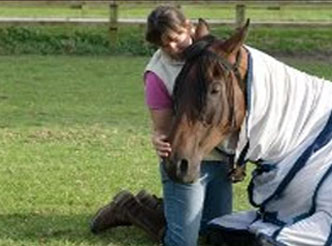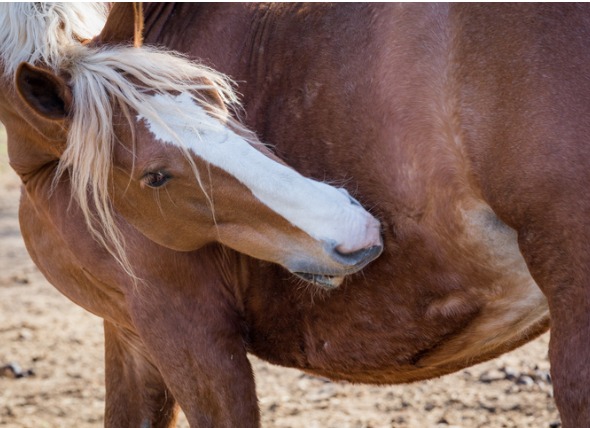Equine Colic
Colic in horses is defined as abdominal pain, but it is a clinical sign or a symptom rather than a diagnosis. The term colic can encompass all forms of gastrointestinal conditions which cause pain as well as other causes of abdominal pain not involving the gastrointestinal tract. The most common forms of colic are gastrointestinal in nature and are most often related to colonic disturbance.

A Stable Grazer Can Help Fight Colic
A Stable Grazer automatic hay feeder can help fight the battle against colic by providing long stem roughage on a frequent and consistent feeding schedule. The Stable Grazer Generation II automatic hay feeder has a large 22” deep manger and manger rods. The manger rods increase the time spent feeding by reducing the amount of hay your horse can pull through at one time. The manger provides a clean feeding area, reducing the chance of ingesting sand or other foreign material.

There are a variety of different causes of colic, some of which require surgical intervention and can prove fatal. Colic surgery is usually an expensive procedure as it is major abdominal surgery. Among domesticated horses, colic is a major cause of premature death. The incidence of colic in the general horse population has been estimated between 10 and 11 percent on an annual basis. It is important that any person who owns or works with horses be able to recognize the symptoms of colic and determine whether or not a veterinarian should be called.
Clinical Signs:
- Rolling
- Groaning
- Bruxism
- Excess salivation
- Loss of appetite
- Decreased fecal output
- Increased pulse rate
- Dark mucous membranes

